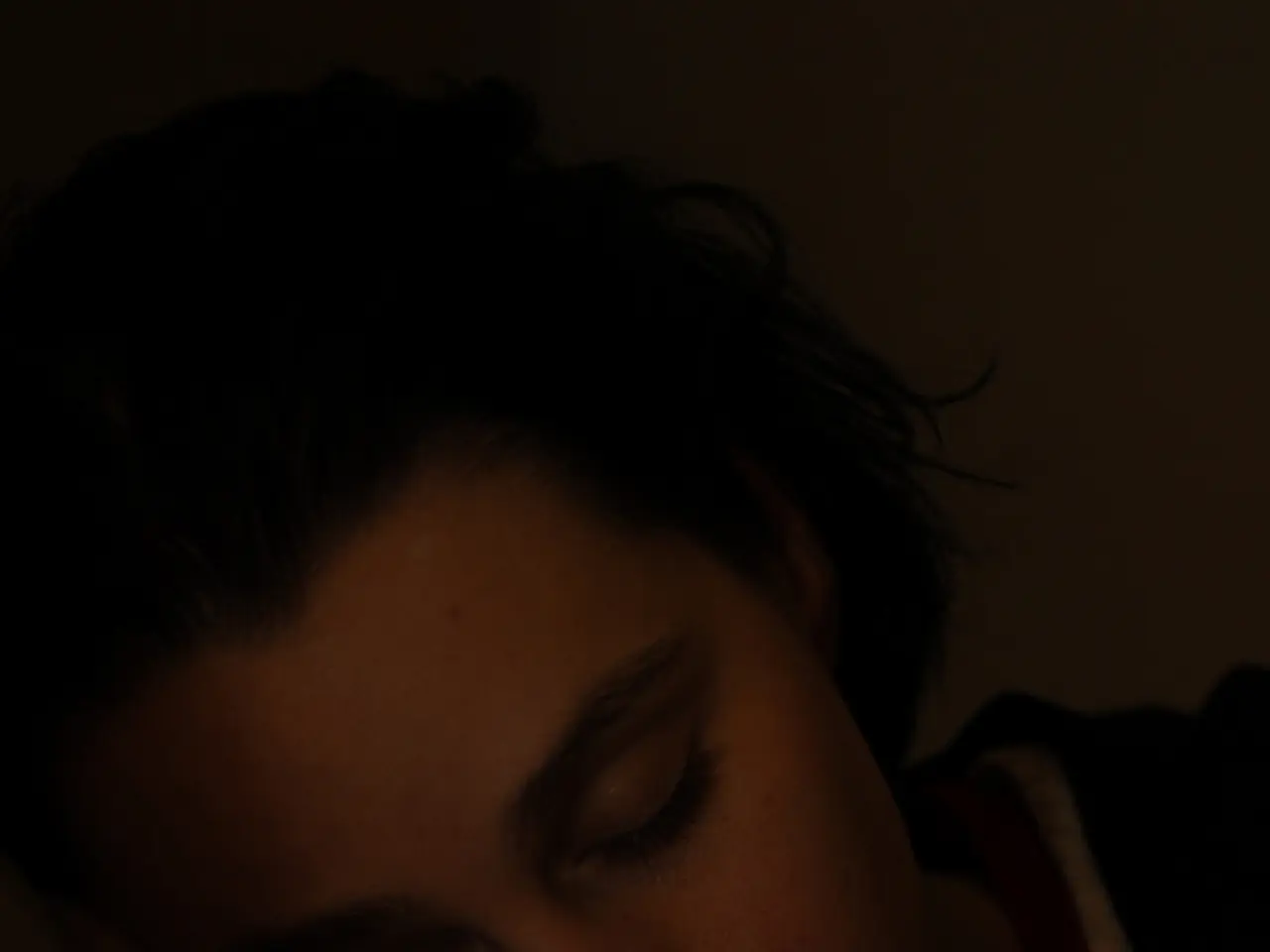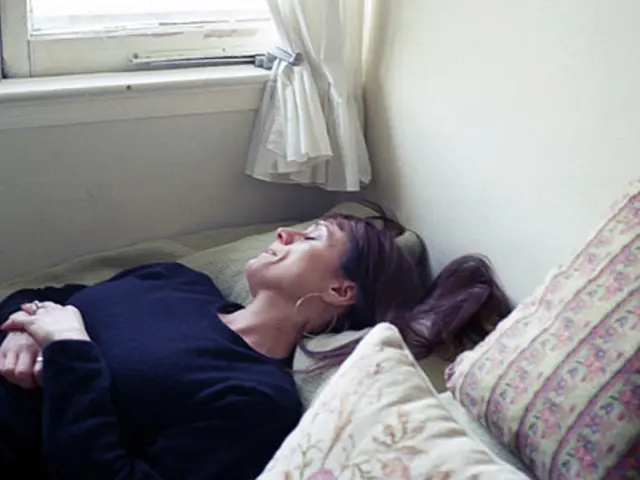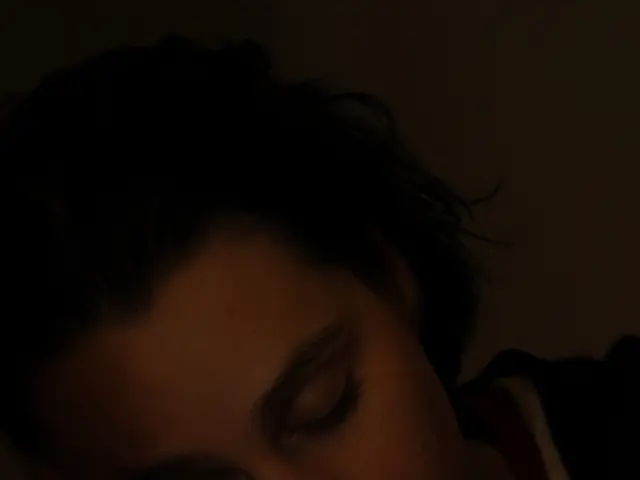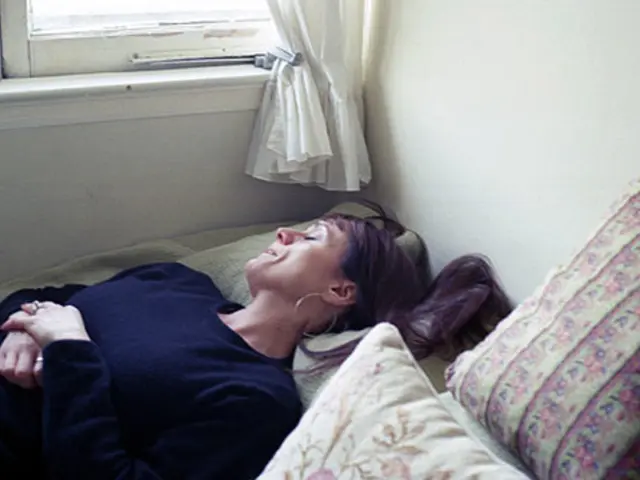Afternoon snoozes potentially indicate subpar wellbeing
Refreshed Insights on Snoozing:
Having a decent night's sleep is crucial for both physical and mental wellbeing. As we age, catching those Z's becomes quite a challenge, leading many to opt for daytime snoozes. However, a recent study sheds light on the potential perils of napping too much or at the wrong time.
The study, presented at Sleep 2025, has highlighted a link between daytime napping, particularly around midday, and a higher risk of death from any cause. Although the observational nature of the research means it can't establish a causative connection, it does suggest that longer naps, irregular napping patterns, and those taken in the late morning or early afternoon, could be early warning signs of health issues or disrupted sleep architecture in older adults.
The 86,565 participants in the study, who started the research at an average age of 63, completed seven days of actigraphy monitoring (continuous wearing of a wristwatch-like device that tracks activity to monitor sleeping and waking times). The findings revealed that those who died during the follow-up had taken longer naps, had more variation in their nap times, and were more likely to nap between 11 a.m. and 3 p.m.
Dr. Emer MacSweeney, CEO of Re:Cognition Health, commends the research, stating that "it suggests that daytime napping patterns could serve as early markers of declining health or disrupted sleep architecture in older adults."
Similar research suggests that excessive daytime napping is associated with a higher risk of dementia, but none of these studies can prove a causative link. Nevertheless, the message is clear: napping might be more than just a refresher - it could be a telltale sign of underlying health issues that need to be addressed.
To maintain good sleep hygiene, experts recommend limiting caffeine, creating a calming bedtime routine, increasing daytime exposure to natural light, treating underlying sleep disorders, and exercising regularly, among other strategies. If persistent sleepiness persists even with good sleep habits, a clinical sleep assessment is advisable. So, if you're nodding off more often than usual, it might be time to take it as a warning bell for potential health issues rather than simply catching some more Z's.
- Seniors should be cautious about their daytime napping habits, as a recent study has linked longer naps, irregular patterns, and those taken between 11 a.m. and 3 p.m. to a higher risk of health issues or disrupted sleep architecture.
- The study, presented at Sleep 2025, also suggests that daytime napping patterns could serve as early markers of declining health or disrupted sleep architecture in older adults.
- The study, which involved 86,565 participants, found that those who died during the follow-up had taken longer naps, had more variation in their nap times, and were more likely to nap during midday.
- The research aligns with other studies suggesting that excessive daytime napping is associated with an increased risk of dementia, although causative links remain unproven.
- Maintaining good sleep hygiene for seniors is crucial, and experts recommend strategies such as limiting caffeine, creating a calming bedtime routine, increasing daytime exposure to natural light, treating underlying sleep disorders, and exercising regularly.
- If persistent sleepiness persists even with good sleep habits, a clinical sleep assessment is advisable to rule out potential underlying medical conditions like chronic kidney disease, cancer, respiratory conditions, or mental health issues.
- Adequate eye-health, cardiovascular-health, skin-conditions, and overall health-and-wellness are dependent on good sleep hygiene and addressing any underlying health issues discovered through a sleep assessment.
- Instead of simply viewing persistent sleepiness as a signal to catch more Z's, seniors should consider it a potential early warning sign of various chronic-diseases or mental-health issues requiring attention.







